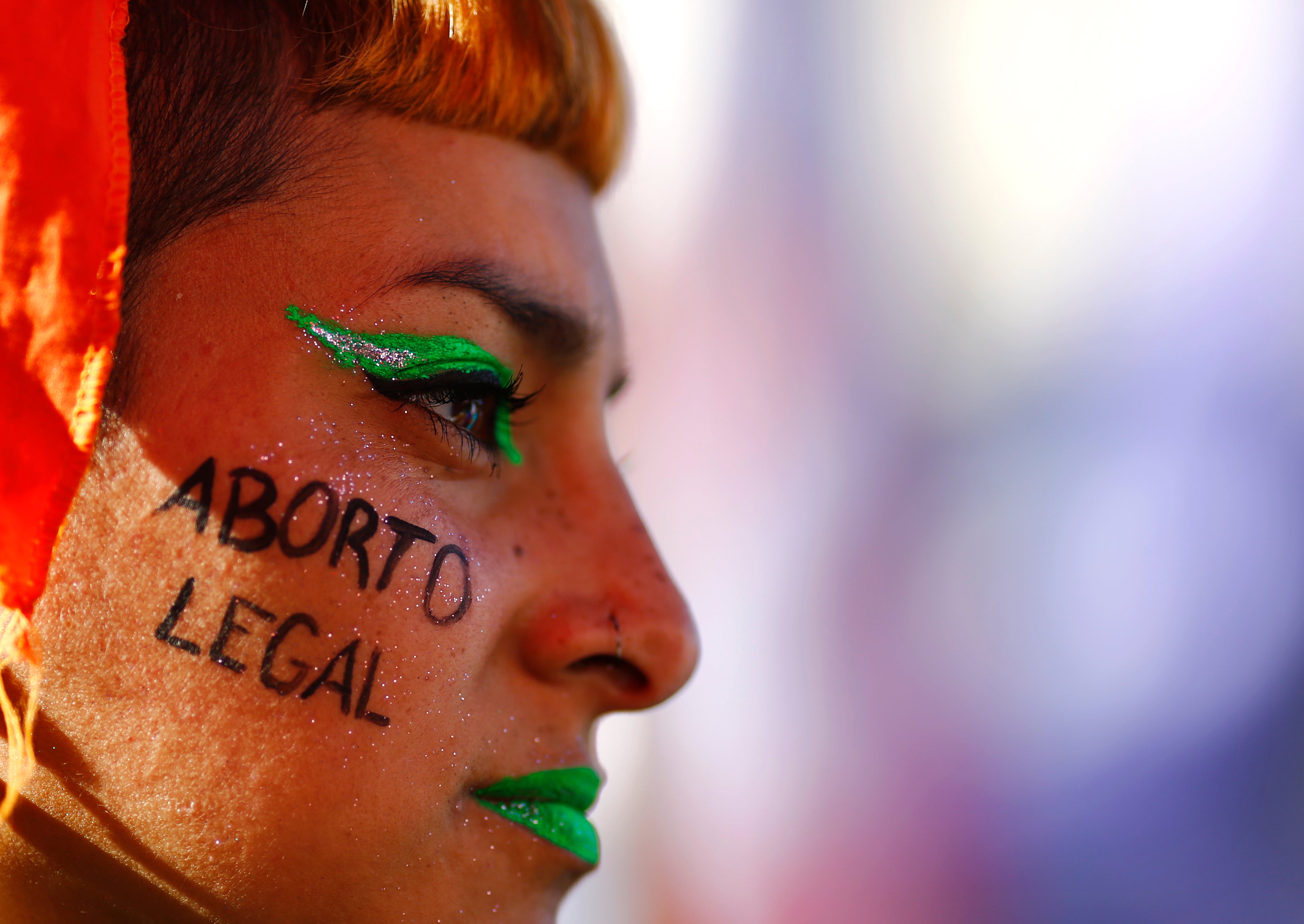‘Watershed moment’: Argentina’s president introduces bill to legalise abortion
‘For too long, women’s rights have been violated and their lives lost because of callous restrictions on abortion care,’ says campaigner

Your support helps us to tell the story
From reproductive rights to climate change to Big Tech, The Independent is on the ground when the story is developing. Whether it's investigating the financials of Elon Musk's pro-Trump PAC or producing our latest documentary, 'The A Word', which shines a light on the American women fighting for reproductive rights, we know how important it is to parse out the facts from the messaging.
At such a critical moment in US history, we need reporters on the ground. Your donation allows us to keep sending journalists to speak to both sides of the story.
The Independent is trusted by Americans across the entire political spectrum. And unlike many other quality news outlets, we choose not to lock Americans out of our reporting and analysis with paywalls. We believe quality journalism should be available to everyone, paid for by those who can afford it.
Your support makes all the difference.Argentina’s president has introduced a bill that would legalise abortion in a move campaigners say places the country on the “brink of a breakthrough” for women’s rights.
Alberto Fernández, who was sworn in as president in December last year, has presented a draft abortion bill to congress that would overhaul the nation’s highly restrictive laws around terminating a pregnancy.
Abortion is permitted in the Latin American country if the pregnancy is due to rape or in instances when the mother’s health or life is in danger but campaigners say the law is not consistently implemented — with abortions routinely unavailable even when women are legally entitled to access them.
Mr Fernández, who is in favour of abortion rights, has said the new legislation would ultimately save lives, as almost 40,000 women are forced to go to hospital after illegal abortions go wrong. Unsafe backstreet abortions are the chief cause of maternal mortality in Argentina.
“For decades, courageous feminist activists have fought to secure abortion rights. We celebrate with them today as they once again have brought the country to a watershed moment for women’s rights,” Shena Cavallo, of the International Women’s Health Coalition, said.
“For too long, women’s rights have been violated and their lives lost because of callous restrictions on abortion care. We urge Argentinean lawmakers to heed the calls of the people and fulfil women’s human rights by passing this bill and legalise abortion.”
Abortion is a highly divisive issue in the predominantly Roman Catholic country of 45 million, and a bill legalising the procedure was rejected by a close margin by Argentina’s senate after getting the approval of the country’s congress back in 2018. But the legislation now has the support of the country’s president.
Hundreds of thousands of activists campaigning for abortion rights brandished green scarves — which have become an emblem of the country's long-running battle to make it legal for women to have pregnancies terminated — back in 2018.
Ms Cavallo, whose organisation has supported movements to decriminalise abortion in Argentina for almost two decades, added: “2018 changed the social and political landscape for abortion rights."
Argentina would become the first major Latin American country to legalise abortion if the bill — which has been delayed by the coronavirus crisis — passes.
Fury over abortion laws raged in February last year when authorities refused to let an 11-year-old girl impregnated by an elderly rapist in Argentina have the abortion to which she was legally entitled.
The young girl, who had been raped by her grandmother’s 65-year-old partner, gave birth by caesarean but her baby died on International Women’s Day last year.
Mr Fernandez pledged to introduce legislation which makes abortion legal during his first annual address to congress. The president argued the current law had “condemned many women, generally of limited resources, to resort to abortive practices in absolute secrecy, putting their health and sometimes their lives at risk”.
He said: “Abortion happens, it’s a fact. A state should protect citizens in general and women in particular. And in the 21st Century, every society needs to respect the individual choice of its members to decide freely about their bodies.”
Mariela Belski, executive director of Amnesty International Argentina, said the women’s movement’s “unwavering efforts” have triggered this “historic moment”.
She added: “Today abortion is a central issue on the political agenda. The president has kept his word and has presented a draft bill to legalise abortion in Argentina. Now Congress must rise to the occasion and not miss the opportunity to recognise the rights of women, girls and others who can become pregnant to make free decisions about their bodies.
“After years of resilience spent waiting for this moment, we must guarantee access to legal abortion in Argentina without any further delay. It’s time we said goodbye to decades of violations of sexual and reproductive rights. Legalising abortion is a human rights imperative and a necessary step towards becoming, once and for all, a more equal society.”


Join our commenting forum
Join thought-provoking conversations, follow other Independent readers and see their replies
Comments